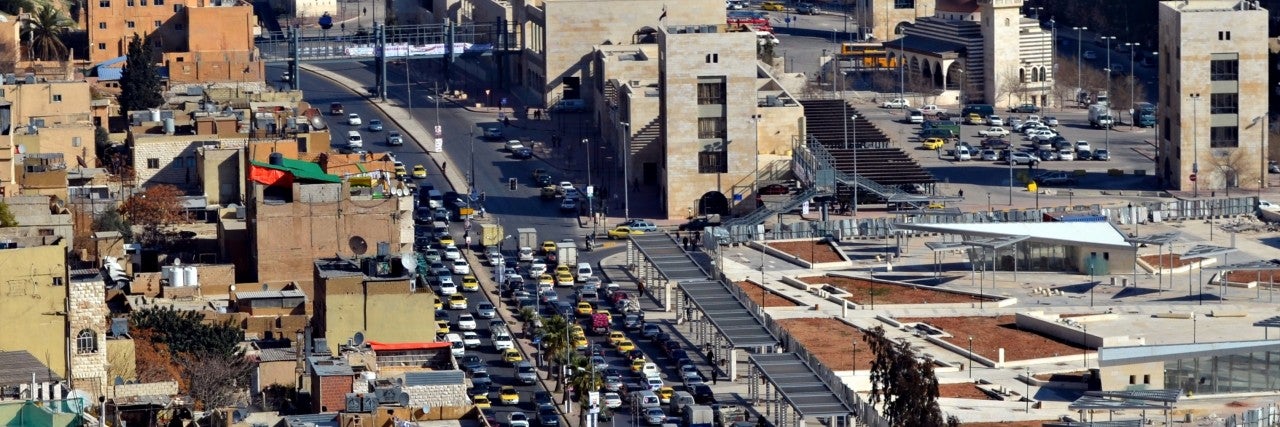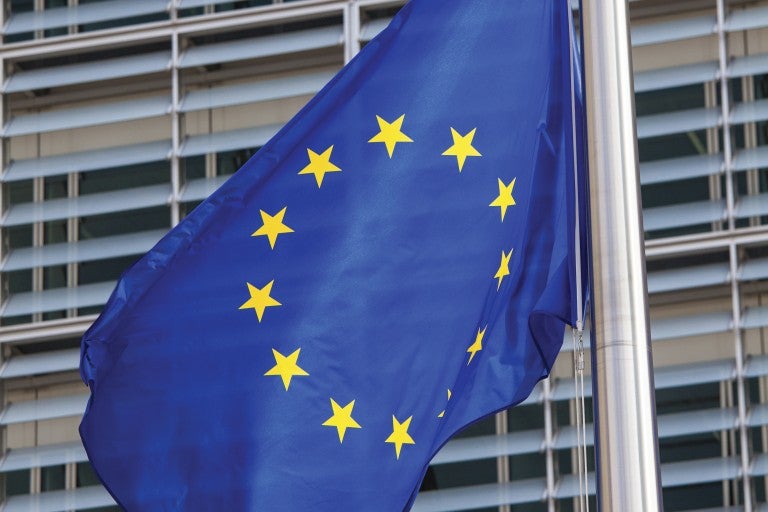January 17, 2018 — Jerusalem
By Eran Lerman
It is now seven years, almost to the day, since the eruption of the raging regional tumult (some naïve souls still call it "the Arab Spring"). The Hashemite Kingdom of Jordan remains an island of stability in the eye of the storm – indeed, of several storms seemingly sweeping stronger states into the abyss.
There are challenges all around. Syria still burns. Iraq is still torn. To the south, Saudi Arabia is undergoing a dramatic transition. Tensions are rising along Israel's borders, with Hamas tunnels being demolished one by one. Mahmoud Abbas has just thrown a childish tantrum, trashing Jewish history in the course of excoriating the Trump Administration's policies. Turkey, under Erdogan, seeks to undermine Jordan's, and Israel's, position in Jerusalem. Above all, the Iranian regime – which, for the time being, seems to celebrate its repression of the protesters – seeks to activate again a front of "resistance" against Israel, and that implies putting Jordan in its crosshairs.
Amidst all this, King Abdallah II has managed to keep his country on an even keel despite the influx of Syrian refugees – some say a million, some say many more – and despite the kingdom's inherent social and political tensions pitting "East Bankers" (tribal elements) vs. a majority population of Palestinian origins. This achievement, vital to regional stability and to Israel's security, should not be taken for granted. This is the time for Americans and Israelis alike to set aside points of disagreement and to recommit to the survival, stability, and relative prosperity of Jordan. The alternatives are unthinkable.
The main threat is not yet openly stated, but can be deduced – once again – from Iran's revolutionary regional ambitions, which have been at the focus of recent U.S. and Israeli messages of warning to the rest of the world. A recent MEMRI study has confirmed that Iran's leader, and the IRGC acting on his behalf, were busy, until the outbreak of protest drew their attention back home, trying to reunite the various anti-Israeli elements of the region into an effective alliance of "muqawamah" (resistance) forces. This would include, among other efforts, patching up relations with Hamas, which had opposed Assad’s murderous regime and his Iranian-sponsored Hezbollah ally. It also involves an Iranian-inspired attempt by Palestinian Islamic Jihad in Gaza to slowly escalate the tension by sporadic rocket fire into Israel.
At the same time, explicit Iranian statements going back to Khamenei's tweet in November 2014, and recently repeated, indicate that Tehran’s strategy also includes "arming the West Bank" so it can become a militarized zone like Gaza, capable of raining death and destruction on Israeli population centers at close range.
In order to be able to do so, geography dictates that the Iranians must first turn Jordan into an easy conduit, just as Sinai was before President Sisi began a serious clampdown on the flow of arms (and goods) through Egyptian territory.
The first Iranian step, already happening, would be to clear the Syrian side of the Golan Heights of all anti-Assad resistance. The second, which is what Israel has been talking to the Russians about, is the establishment of a strong Hezbollah/IRGC presence on the border with Jordan. Destabilization of the kingdom and the placement of areas adjacent to the West Bank under Iranian/Hezbollah control would follow.
The final step would be a campaign of penetration through the Jordan Valley, not unlike what Israel faced in the late 1960s, but this time with Islamists on the ground and Iran in the background, not pseudo-Marxist terrorists backed by Soviet clients.
In order to prevent realization of this nightmarish scenario, the U.S., Russia, and Jordan signed a memorandum of understanding in November 2017, enlarging upon earlier understandings reached in July. With Israel indirectly involved – and not entirely pleased with the outcome – this understanding was meant to ensure that a certain buffer would remain in place even if the Syrian war winds down and the regime reasserts full control up to the border.
The underlying reason for this agreement is the Russian realization that allowing Assad to become a tool of Iranian designs would put him at a serious risk. The Russians have a healthy respect for Israeli military capabilities, which Israel takes care to maintain by word and deed. Still, it is Jordan that serves as the operational edge of this effort to contain Iran, and its continued ability to keep itself safe from such schemes – through its military forces and intelligence services, always among the best in the region – will remain a vital Israeli and American interest.
Internally, the ruling family has recently gone through a minor upheaval. The king abruptly ended the military service of his brothers, Princes Faysal and Ali, as well as of his cousin, Prince Talal – presumably paving the way for the rapid rise of his own son, and now heir, Prince Hussein. This act can be read as a show of force – taking a leaf from Muhammad bin Salman's purges of the family in Saudi Arabia, some would say – but it remains to be seen what effect it may have on military morale and on the quality of command in the field. Talal was for a long time in charge of the special forces, Jordan's best.
In terms of the relationship with Israel, all this comes at a bad time. While the formal status of relations has not changed – and Walid Obeidat (a personal friend) still does stellar work as Ambassador to Israel – there has been no Israeli Ambassador in Amman since Einat Schlein left in July, and ongoing questions about her return.
This situation is the result of what tennis players would call an "unforced error" by PM Netanyahu: having secured safe passage to Israel of the security guard who shot to death his Jordanian assailant and inadvertently also killed his landlord, he could not resist the PR temptation to give him a public hug. The Jordanians exploded at this "populist" gesture, and the embassy team has not been allowed to return. Recent efforts to bring about a solution, led by the head of the Mossad Yossi Cohen, made progress (there was even talk of appointing a senior figure, Major General (res.) Amos Gilad, as ambassador), but Trump's declaration on Jerusalem put everything on hold.
It is in the interest of all sides to resolve this situation. As long as it persists, and Jordan keeps taking anti-Israel positions in international fora such as UNESCO, voices will continue to be raised in Israel advocating "Jordan is Palestine" and arguing that the cost of friendship with the Hashemites is too high. It did not help that the Jordanian courts granted the wish of mass murderer Ahlam Tamimi – responsible for the Sbarro restaurant bombing in Jerusalem in 2001 – to deny Israel's demand that she should be handed over. Hardline attitudes among angry Israelis may become more widespread unless relations are brought back to normal.
The U.S., as a major donor, or the leaders of Greece and Cyprus, who just held a trilateral summit with King Abdallah in Nicosia, could (and should) play a role in resolving the difficulty. Despite the anger and the doubts, Israel and Jordan need each other.
Eran Lerman is the former deputy for foreign policy and international affairs at the National Security Council in the Israeli Prime Minister's Office. Prior to that, he served as director of AJC Jerusalem.


